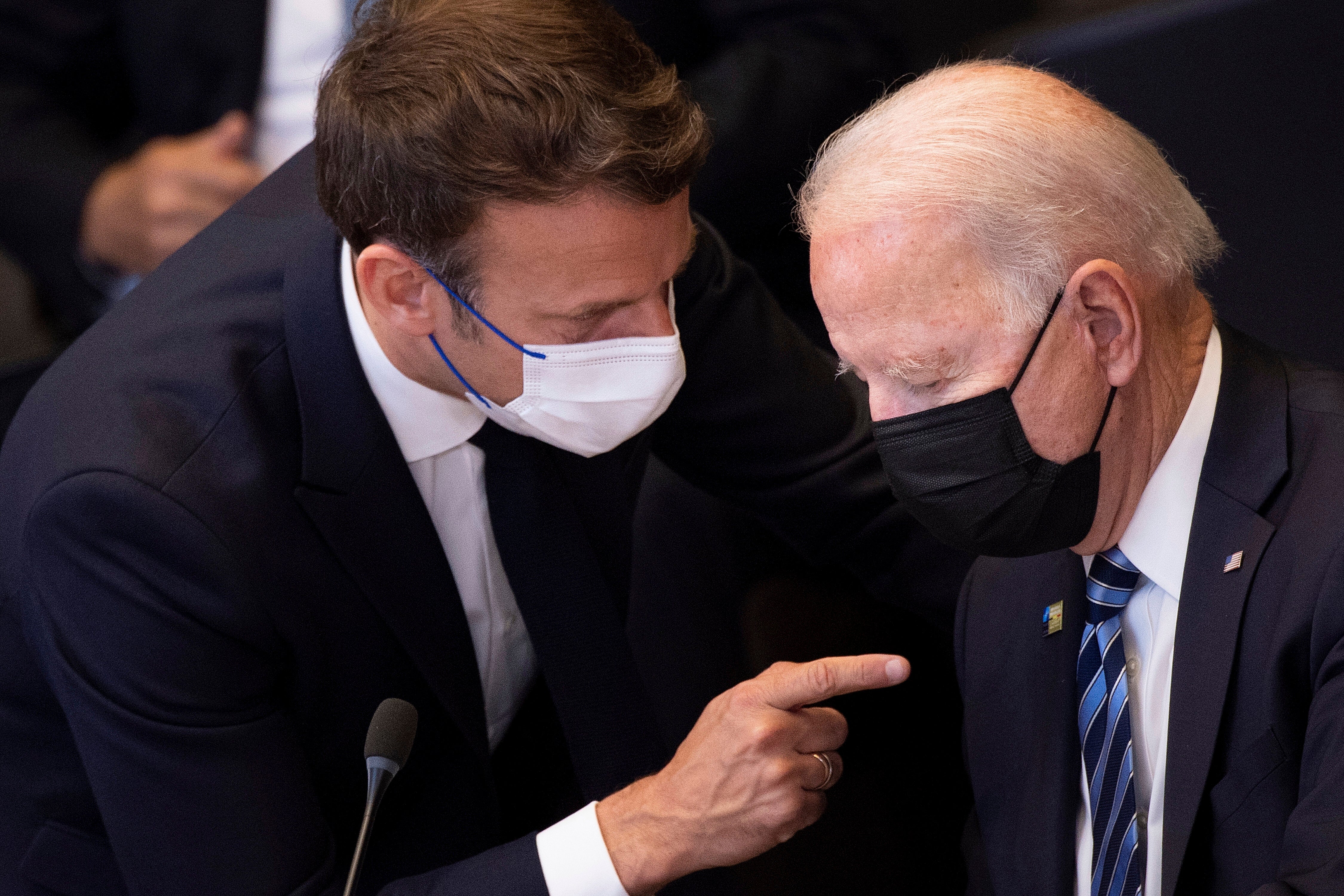France still bristling over Indo-Pacific sub snub
This week's phone call between President Joe Biden and French President Emmanuel Macron may have soothed some the incandescent rage with which France erupted over its exclusion from a new Indo-Pacific defense initiative, but the anger and resentment remain clear

Your support helps us to tell the story
From reproductive rights to climate change to Big Tech, The Independent is on the ground when the story is developing. Whether it's investigating the financials of Elon Musk's pro-Trump PAC or producing our latest documentary, 'The A Word', which shines a light on the American women fighting for reproductive rights, we know how important it is to parse out the facts from the messaging.
At such a critical moment in US history, we need reporters on the ground. Your donation allows us to keep sending journalists to speak to both sides of the story.
The Independent is trusted by Americans across the entire political spectrum. And unlike many other quality news outlets, we choose not to lock Americans out of our reporting and analysis with paywalls. We believe quality journalism should be available to everyone, paid for by those who can afford it.
Your support makes all the difference.This week’s phone call between President Joe Biden and French President Emmanuel Macron may have soothed some of the incandescent rage with which France erupted over its exclusion from a new Indo-Pacific defense initiative, but the anger and resentment remain clear.
After meeting Thursday with Secretary of State Antony Blinken on the sidelines of the U.N. General Assembly, French Foreign Minister Jean-Yves Le Drian pointedly referred to the situation as a “crisis” that will take time and U.S. action to overcome.
As part of the defense pact, Australia will cancel a multibillion-dollar contract to buy diesel-electric French submarines and acquire U.S. nuclear-powered vessels instead.
According to Le Drian, he and Blinken discussed the “terms and topics to be dealt with in an in-depth consultation process between the two countries aimed at restoring trust.”
Le Drian "affirmed that a first step had been taken with the call between the two presidents but noted that it would take time to end the crisis between our two countries and would require actions,” according to a statement from the French foreign ministry.
That’s even after Macron told Biden he had decided to send his country’s ambassador — recalled to Paris in an unprecedented move at the height of the spat — back to Washington.
Seeking rapprochement with America’s oldest ally appears not to come easily to the Biden administration, which has stopped short of apologizing for excluding France from its Indo-Pacific arrangement with Britain and Australia and seems intent on powering through the trouble.
While Le Drian lingered on the hurt and damage done to the relationship, the State Department's account of the meeting gave it nary a mention. Nor did it mention "trust."
The two men “spoke about plans for in-depth bilateral consultations on issues of strategic importance," department spokesman Ned Price said in a statement. "They discussed the EU Strategy for Cooperation in the Indo-Pacific, which the United States welcomes, and the need for close cooperation with France and other European allies and partners active in the region.”